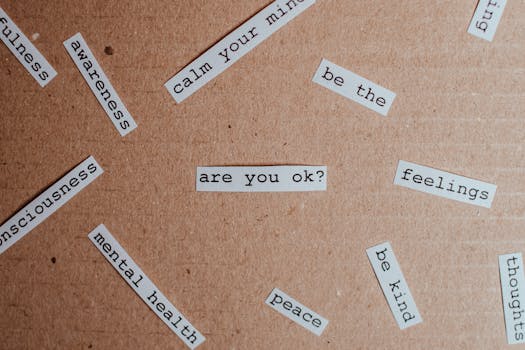Takeaways
- Regular physical activity significantly improves mental health.
- Exercise helps reduce symptoms of anxiety and depression.
- Physical activity boosts self-esteem and cognitive function.
- Finding an enjoyable exercise routine can enhance consistency.
Why Exercise Matters for Your Mental Health


We often hear about the physical benefits of exercise—losing weight, building muscle, and improving cardiovascular health. But what about our minds? As someone who has struggled with anxiety and stress, I can tell you that incorporating regular exercise into my routine has been a game-changer for my mental well-being.
Whether it’s a brisk walk in the park, a dance class, or hitting the gym, moving our bodies releases those magical chemicals in our brain that lift our spirits and calm our minds. So, let’s dive into the fantastic mental health benefits of regular physical activity!
1. Reduces Anxiety and Depression
We’ve all been there—feeling overwhelmed, anxious, or just plain down. Research shows that exercise can be as effective as medication for some people in reducing symptoms of anxiety and depression. Personally, I’ve found that on days when I’m feeling particularly anxious, a quick jog or even a 20-minute workout can significantly lift my mood.
When we exercise, our brains release endorphins, sometimes referred to as ‘feel-good’ hormones. These little guys help combat stress and promote a sense of well-being. Plus, the rhythmic nature of many physical activities—like running or cycling—can be meditative, allowing us to clear our minds and focus on the present moment.
2. Boosts Self-Esteem and Confidence
Have you ever finished a tough workout and felt like a total rock star? There’s nothing quite like it. Regular physical activity isn’t just about building muscle or losing weight; it’s also about building confidence. Each time I set a fitness goal—whether it’s running a certain distance or lifting a specific weight—and achieve it, I feel a boost in my self-esteem.
Engaging in physical activity can help us develop a more positive body image. When we take care of our bodies, we often start to feel better about ourselves overall. It’s a beautiful cycle: the more we exercise, the better we feel, and the more we want to keep moving!
3. Improves Cognitive Function
Did you know that regular exercise can actually improve your brain function? It’s true! Studies have shown that physical activity can enhance memory, cognitive skills, and even creativity. I’ve noticed that on days when I’ve exercised, I’m more focused and productive—it’s like my mind is clearer and ready to tackle any task.
Exercise increases blood flow to the brain, which can help improve brain health and function. So, if you’re hitting a mental block, maybe it’s time to take a break and go for a walk or do some stretches. You’ll return with a fresh perspective!
4. Creates a Social Connection
Another fantastic aspect of regular physical activity is the opportunity for social interaction. Whether it’s joining a local sports team, attending a fitness class, or just hitting the gym with a friend, exercising can help us connect with others. I’ve made some of my best friends through group classes and running clubs.
Social connections are crucial for mental health. They provide support, encouragement, and a sense of belonging. When we exercise together, we motivate each other and celebrate our achievements, which can enhance our overall happiness.
FAQs
How much exercise do I need for mental health benefits?
Experts recommend at least 150 minutes of moderate aerobic activity weekly. That can be broken down into smaller sessions—just find something you enjoy!
What types of exercise are best for mental health?
Any exercise you enjoy can be beneficial! Activities like yoga, running, swimming, or even dancing are great options that can enhance your mood and reduce stress.
Can I see mental health benefits from just walking?
Absolutely! Walking is a fantastic way to boost your mood and improve mental health. Even short walks can help clear your mind and elevate your spirits.
Is it okay to exercise if I’m feeling really down?
It’s completely normal to feel unmotivated when you’re down. Start small, like a gentle walk or stretching at home. The important thing is to listen to your body and do what feels right for you.





